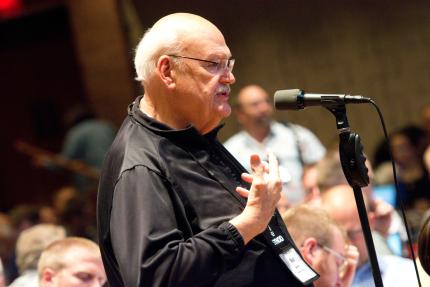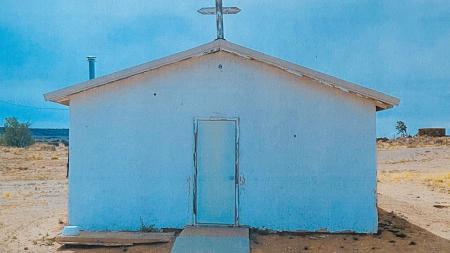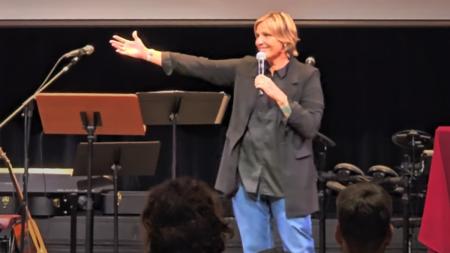Urban Ministry Pioneer Dies

Karen Huttenga
William “Bud” Ipema, a Christian Reformed Church pastor who died on Apr. 14 at the age of 81, is being remembered by friends and colleagues for his long career in urban ministry throughout Chicago and beyond.
They say that Ipema, who was a pioneer in forging better race relations among people, had a heart for people living on the margins of society.
“Bud always wanted to get where there was hurting and suffering. Being in hard places was really crucial for him,” said Reggie Smith, director of the Office of Race Relations and the Office of Social Justice.
Even from the time of his ordination, Ipema had a wide vision for ministry, said Smith.
“He was never the senior minister of a church. He saw the world as his parish,” said Smith.
Ipema, however, served as an associate pastor at Lawndale CRC, a hub of racial reconciliation work in Chicago since the late 1960s.
Organizations that Ipema either launched or served in a leadership role included the MidAmerica Leadership Foundation (today called Goodcity); the Seminary Consortium for Urban Pastoral Education (SCUPE); Chicago Orleans Housing; the Council of Leadership Foundations; and Timothy Leadership Training Institute (now part of Raise Up Global Mission), where he was executive director for several years.
Ipema also served as codirector with Karl Westerhof of the Synodical Committee on Race Relations (SCORR), from which the CRC’s Office of Race Relations emerged.
Above all, Ipema, the son of a construction company owner, was committed to building things, said Westerhof in a eulogy he gave on Apr. 27 at Lawndale CRC.
“Whether it was houses, relationships, organizations, or whatever, Bud loved to build, and build well, build to last. Entrepreneur is another word that could easily capture Bud. He had that chemistry, that gift, that makes a person able to translate visions into realities,” said Westerhof.
“Whether it was an old building becoming a ministry center, or a poor person’s dream becoming a reality, or a lagging organization becoming an innovative ministry, or a mentee becoming an effective change agent and leader — Bud loved to build.”
Ipema began his ministry work in 1968 by serving with the Young Life Urban Mission in Chicago. Moving to Chicago’s Englewood neighborhood as a national urban trainer for Young Life, he worked closely with gangs.
“During his first 45 days working with the program, he attended 12 funerals; 11 were murders,” says his obituary in the Holland Sentinel.
Each summer, he would take busloads of young people from Chicago’s urban communities to Young Life Camp at Star Ranch in Colorado. Many of the young people had never been out of their neighborhoods.
At the camp, says the obituary, several campers “experienced a faith-filled and life-changing transformation. Their only requirement for participating was to check their weapons into a lockbox on the bus before its departure.”
Reggie Smith grew up on the West Side of Chicago and attended Lawndale CRC, where he met Ipema, whom he credits with leading him into ministry.
“Bud would preach every few weeks or so. One Sunday he preached a sermon on answering the call of God,” said Smith, who had been planning to be a lawyer, not a minister, even though he had sensed God speaking to him in a dream about becoming a minister.
Right after that sermon, said Smith, Ipema “made a beeline for me and said that sermon was for me and that one day I would preach.”
Ipema’s certainty that the Lord wanted Smith to become a preacher was contagious, and Smith ended up attending Calvin Theological Seminary, all the while impressed and encouraged by Ipema’s willingness to “fight for the marginalized and for racial and economic justice. He wanted to make things right.”
Westerhof met Ipema in the late 1960s when Ipema was serving Young Life and meeting with young people, including gang members, in the basement of Lawndale CRC. At the time, Westerhof was an intern pastor at the church.
“Lawndale CRC meant so much to Bud. . . . He and his family were invested in urban Young Life, experiencing the excitement, the challenge, the uncertainties, the risks of urban ministry. . . .”
Throughout his ministry, said Westerhof, Ipema was always “bringing together creativity, vision, leadership capacity, resources, political moxie . . . to bring a dream to life, to help someone move their own dream to reality.”
As a pastor and urban missionary, Ipema had a strong sense of his own gifts and shortcomings — and especially his need for God.


